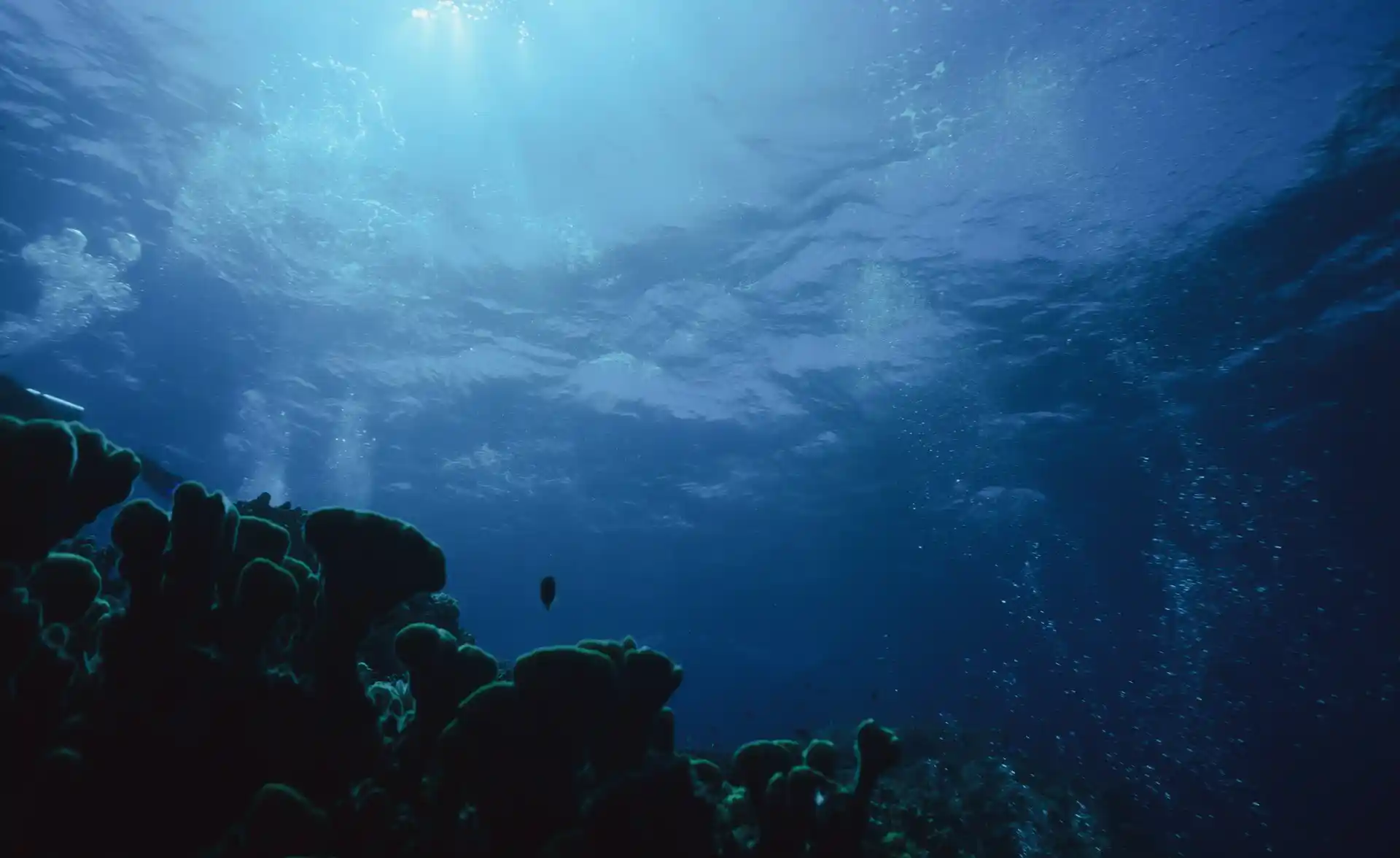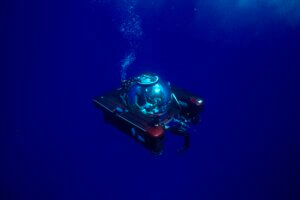Why Should We Be Putting More In Ocean Research Funding?
We live on a blue planet. Over 70% of Earth’s surface is covered by oceans, yet more than 80% of the ocean remains unexplored. It holds the largest ecosystems, the majority of the planet’s biodiversity, and plays a central role in regulating the climate. And yet, when it comes to scientific investment, ocean research receives a fraction of the funding compared to space exploration or medical science.
This imbalance needs urgent correction. As the climate crisis intensifies, marine biodiversity declines, and resources are exploited, the need for increased ocean research funding has never been more critical.
The Ocean’s Role in Sustaining Life
The ocean is not just a vast expanse of water; it is the lifeblood of our planet. It:
-
Produces over 50% of the oxygen we breathe.
-
Absorbs about 30% of the carbon dioxide we emit.
-
Regulates temperature and weather patterns.
-
Provides food, jobs, and recreation for billions of people.
Despite this, oceanic research receives less than 5% of global scientific funding, an alarmingly low figure when you consider what’s at stake.
By allocating more ocean research funding, we could better understand the systems that keep Earth habitable, and respond to the escalating threats facing marine environments.
Climate Change and the Ocean Connection
The ocean absorbs the majority of excess heat trapped by greenhouse gases, making it a buffer against global warming. However, this comes at a cost: warming waters, sea level rise, acidification, and disrupted currents.
Understanding these changes requires robust, long-term monitoring and modeling, which is impossible without adequate ocean research funding. Increased investment would allow scientists to:
-
Monitor changes in ocean temperature and chemistry.
-
Track and predict sea-level rise.
-
Model extreme weather events and their links to ocean conditions.
A better understanding of the ocean’s role in climate regulation can lead to more accurate climate projections, enabling stronger policy responses at national and global levels.
Biodiversity: The Ocean’s Hidden Wealth
The ocean is home to millions of species, many of which are still undiscovered. Coral reefs, deep-sea vents, mangroves, and open waters all support diverse life forms, some of which could hold the key to new medicines, materials, or technologies.
Unfortunately, ocean habitats are being degraded faster than they can be studied. Coral bleaching, overfishing, plastic pollution, and habitat loss threaten countless species.
By increasing ocean research funding, we can:
-
Conduct biodiversity surveys in understudied regions.
-
Identify critical habitats for conservation.
-
Understand marine species’ roles in larger ecosystems.
-
Track invasive species and their impact.
Research can guide marine protected areas, inform sustainable fishing practices, and protect endangered species, if it is properly funded.
Medical and Technological Innovations
Many of the ocean’s organisms have adapted to extreme environments, freezing cold, crushing pressure, complete darkness, which makes them ideal candidates for biotechnological and pharmaceutical breakthroughs.
Examples of innovations from marine research include:
-
Enzymes used in PCR testing (important in diagnosing COVID-19).
-
Painkillers derived from cone snail venom.
-
Anti-cancer compounds from marine sponges.
-
Heat-stable enzymes used in industrial processes.
Increased ocean research funding could accelerate the discovery of more such innovations, many of which could revolutionize healthcare and technology.
Supporting Coastal Communities
Over 40% of the global population lives near a coastline. These communities are directly affected by ocean health through:
-
Fisheries and aquaculture.
-
Tourism and recreation.
-
Coastal erosion and flooding.
-
Natural disasters like hurricanes and tsunamis.
Investing in ocean research funding helps protect these communities by:
-
Improving storm prediction and early-warning systems.
-
Understanding coastal erosion patterns.
-
Enhancing sustainable fisheries management.
-
Identifying resilient marine species and habitats.
Without this research, coastal communities are left vulnerable to both natural disasters and long-term environmental degradation.
Economic Potential of the Blue Economy
The blue economy, industries related to the ocean such as shipping, tourism, fishing, and energy, contributes over $2.5 trillion annually to the global economy.
Ocean research plays a vital role in:
-
Ensuring sustainable fisheries and aquaculture practices.
-
Improving marine transportation efficiency.
-
Developing offshore renewable energy (like tidal and wind energy).
-
Managing and protecting marine resources.
Increasing ocean research funding is not just about conservation, it’s a smart economic investment that ensures the ocean can sustainably support livelihoods for generations.
Uncovering Earth’s Last Frontier
We’ve mapped more of the surface of Mars than we have the seafloor of our own planet. The deep ocean is often called Earth’s last great frontier, hiding underwater mountains, trenches deeper than Everest is tall, and entire ecosystems yet to be discovered.
Investing in ocean research funding allows:
-
Mapping of the seafloor with advanced sonar technologies.
-
Exploration of deep-sea ecosystems.
-
Identification of underwater volcanic activity.
-
Study of plate tectonics and seismic hazards.
Just like space exploration has sparked innovation and curiosity, exploring our oceans can inspire the next generation of scientists, engineers, and conservationists.
Global Security and National Interests
Ocean research is also essential for national security and geopolitical stability. Maritime boundaries, underwater communication cables, and strategic resources all depend on sound scientific knowledge of the marine environment.
More ocean research funding helps:
-
Map and monitor national waters.
-
Track illegal fishing and pollution.
-
Understand ocean currents affecting naval and shipping operations.
-
Support international agreements and treaties.
Science-driven ocean policy makes for stronger diplomacy, safer navigation, and more secure borders.
Public Awareness and Education
Public interest in ocean health is growing, especially among youth movements focused on climate and conservation. However, awareness without access to reliable, updated scientific knowledge leads to misinformation.
By boosting ocean research funding, we can:
-
Support citizen science and educational outreach programs.
-
Translate complex data into understandable policy briefs.
-
Foster collaboration between scientists, educators, and the public.
Knowledge is power, and properly funded research ensures ocean literacy spreads across all sectors of society.
Bridging the Funding Gap
To make meaningful progress, ocean research funding must increase across both government and private sectors. Some steps to bridge the gap include:
-
Dedicated federal ocean science budgets.
-
Public-private partnerships with marine industries.
-
International cooperation on large-scale ocean research programs.
-
Incentives for universities and startups focusing on marine innovation.
Ocean research isn’t just an environmental issue, it’s a multi-sector opportunity that deserves sustained investment.
A Call to Dive Deeper
The ocean is vast, mysterious, and immensely important to life on Earth. Yet, our understanding of it remains dangerously limited. Climate change, biodiversity loss, resource depletion, and coastal vulnerabilities are all interconnected with ocean health.
It’s time to shift priorities and recognize that ocean research funding is not a luxury, it’s a necessity. The return on investment is immense: resilient ecosystems, informed policies, groundbreaking innovations, and a healthier planet.
If we truly care about sustainability, equity, and long-term prosperity, we must put our money where the ocean is and fund the research that helps protect it.
FAQs
Why is ocean research funding so important right now?
Ocean research funding is crucial because the ocean plays a central role in regulating climate, supporting biodiversity, and sustaining human livelihoods. Without proper funding, we risk losing critical insights into rising sea levels, ocean acidification, and marine ecosystem health.
How does ocean research funding benefit everyday people?
Increased ocean research funding helps improve weather forecasting, storm prediction, and disaster preparedness. It also supports sustainable fisheries and protects the livelihoods of coastal communities.
What industries rely on ocean research funding?
Industries such as shipping, fishing, tourism, offshore energy, and biotechnology depend on accurate ocean data. Ocean research funding supports innovation, safety, and sustainability across these sectors.
Why is ocean research underfunded compared to space exploration?
Ocean research often lacks the same public excitement or political momentum as space exploration. However, with increasing environmental challenges, many experts argue that ocean research funding should be a top global priority.
Can ocean research funding help fight climate change?
Yes. Ocean research funding enables scientists to monitor climate-related changes in ocean temperatures, currents, and chemistry. This data is vital for developing effective climate models and mitigation strategies.




